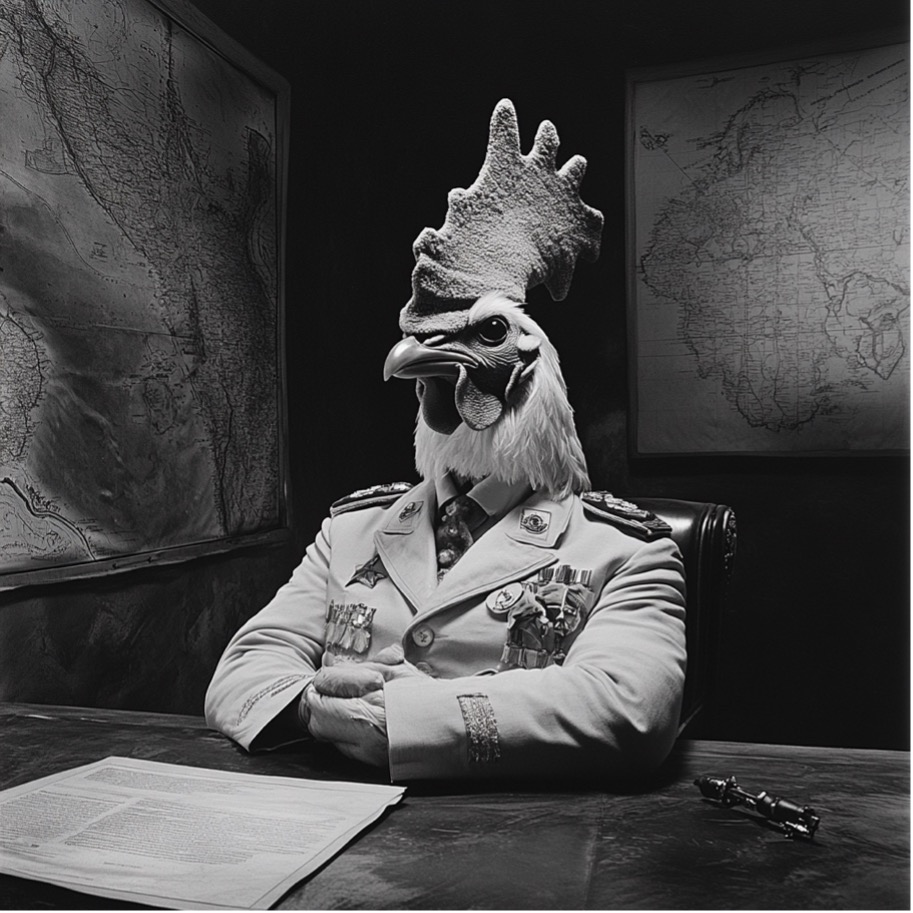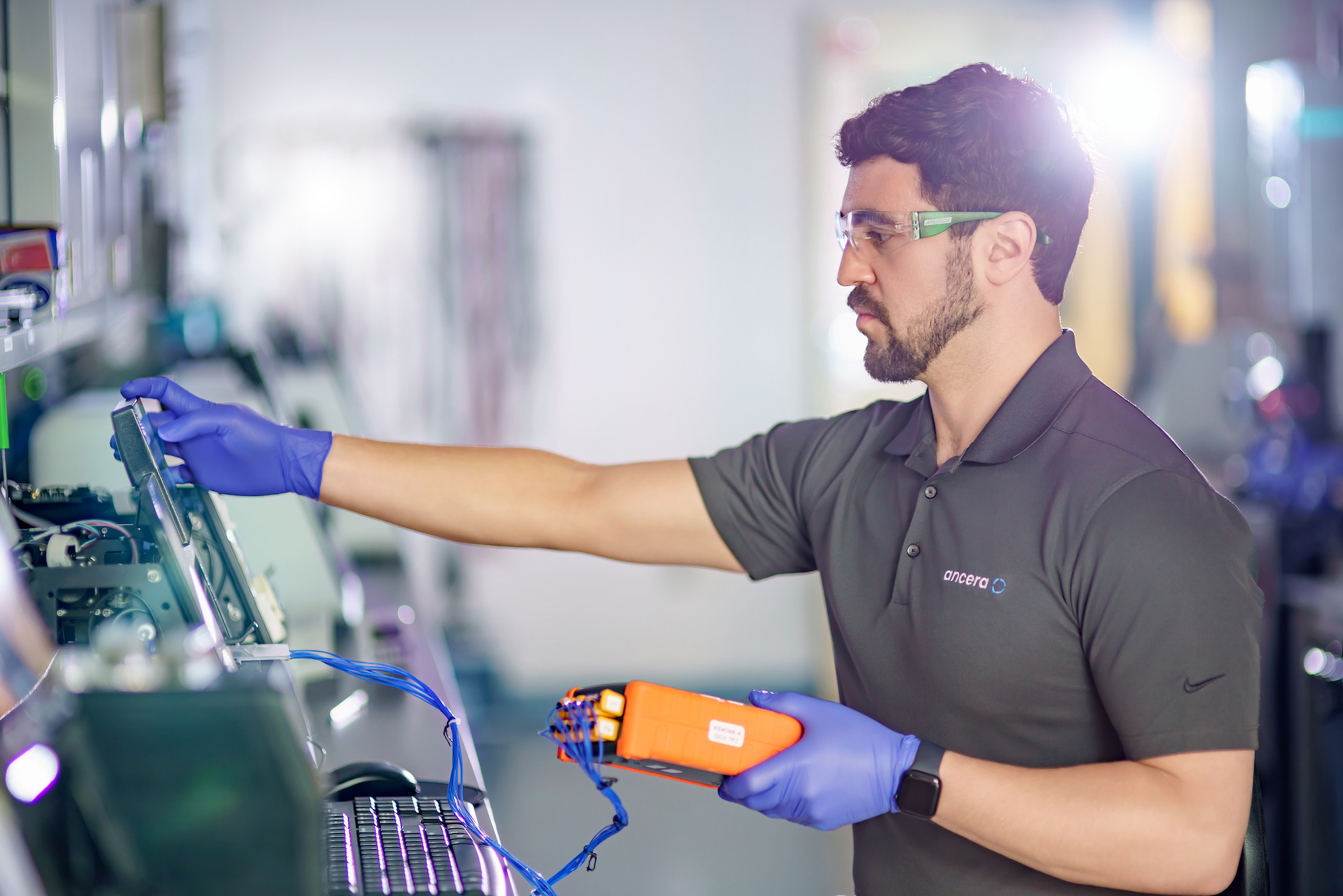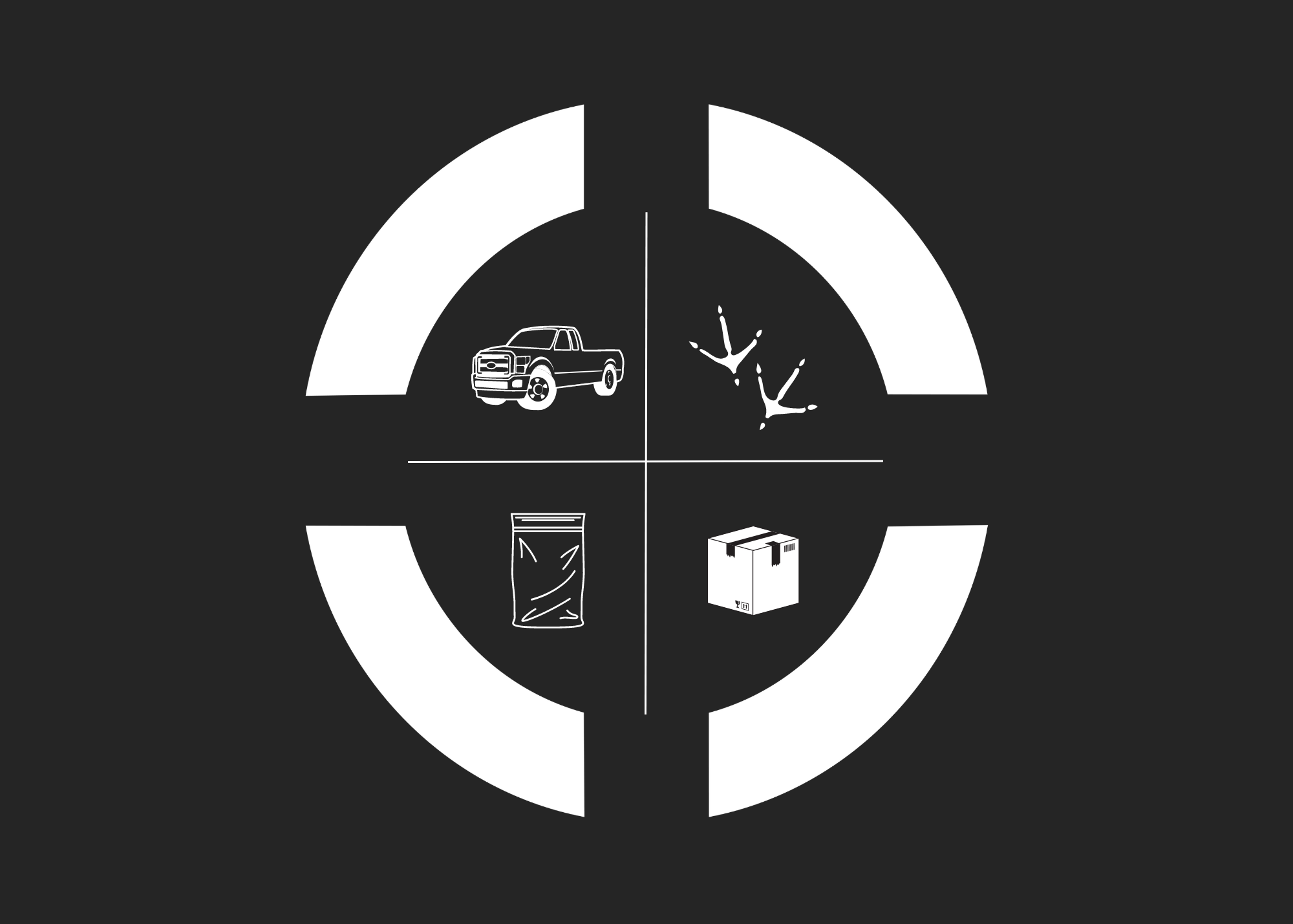In the poultry industry, margins are razor-thin, and every penny spent needs to pull its weight. For too long, poultry companies have leaned on diagnostics and contract labs as a crutch, ticking compliance boxes and relying on gut instinct to make important decisions. But outdated tools and guesswork does not make for a reliable strategy, and more tests aren’t the answer.

Publication
The Future of Food Biotechnology with Aaron Schacht of BiomEdit
On a recent episode of Americas Nest Egg podcast, host and Ancera CEO Arjun Ganesan spoke with Aaron Schacht, CEO of BiomEdit. With over 30 years of experience, Schacht has served as executive vice president at Elanco Animal Health, and in various research and development positions at Eli Lilly and Company. His expertise extends to research and development strategy, drug development, and mergers and acquisitions.
Throughout the conversation, Schacht highlighted the progress made in human health due to significant investments and risk-taking ecosystems, and how this progress shows the potential for similar advancements in animal health.
Career Overview
Schacht is a scientist by training, starting his career in 1990 as a research chemist at Eli Lilly and Company. While he never had a molecule that he made become a drug product, Schacht said this experience was instrumental in shaping his career path.
“I learned a lot about what it takes to do that, both in the lab and in my career for the next 20 years outside of the lab, where I got involved in R&D strategy,” Schacht said.
He would go on to lead R&D, regulatory affairs, and business development at Elanco Animal Health, where he orchestrated strategic acquisitions, including Bayer Animal Health and Aratana Therapeutics. While Elanco was originally under the ownership of Eli Lilly, it eventually reached escape velocity during Schacht’s tenure through an IPO and became independent.
On his time with Elanco, Schacht said, “The last three years were all about trying to realize the full potential of a standalone animal health company operating at the top tier of scale in the animal health industry.”
Making a More Resilient Food Supply
Connecting his experience in human medicine and animal health, Schacht said there’s no question that biotechnology is the transformative mechanism for advancement in these fields.
“The investment levels are so much greater in human health. Because of the risk-taking ecosystem that’s so mature in human health, it’s really defined by leaps and bounds what we can do in terms of modulating the biology and getting a different or better effect for the subjects or patients we’re trying to treat.”
Schacht said these principles can be applied to animal health and that the era of biotechnology in this field is still in its infancy.
“We’re entering a new era in animal health where all of the findings and learnings and all the tools that have been developed on the human health side can be applied in animal health, but we’re not waiting for them to develop over time. They’re all there now.”
BiomEdit and Synthetic Biology
BiomEdit is a pioneering company in microbiome innovation for animal health, focusing on novel feed ingredients and medicines for livestock and pets through advancements in synthetic biology and microbiology.
Schacht describes synthetic biology as “a collective term for anything you would do to engineer a cell.” As cells have innate biologic circuits and sets of functions it’s going to complete, and synthetic biology aims to change that in a meaningful way.
Much like any ‘editor’ takes an existing piece of something and manipulates it for various improvements, BiomEdit uses this tactic in an effort to improve animal health. Schacht says he chose the company name BiomEdit to embrace and adopt two core concepts: the essential, fundamental aspect of the microbiome for how an animal feeds and produces protein, and to use synthetic biology and advanced microbiology to edit the organisms that make up that microbiome.
Using Technology to Lower Emissions
Consumers expect food producers to use tools and technology to improve animal health, reduce emissions in the supply chain, and better protect the people who consume food products.
One of the many initiatives at BiomEdit is an effort to reduce methane emissions in cattle raised for food production. Methane emission happens in the rumen, or the digestive system, of a cow. The rumen is essentially a fermentation vessel and one of the byproducts of the fermentation of the plant fiber that a cow ingests is hydrogen gas. As hydrogen gas build up in the rumen, methanogens consume the hydrogen and convert it to methane. BiomEdit is working to adjust the microbiome composition within the rumen to reduce methane emissions.
“We know that there are some microorganism combinations or concoctions that do a better job or competing for hydrogen than others, so that’s one set of secrets that we aim to try to unlock,” Schacht said.
BiomEdit’s strategy is twofold: reshaping the rumen microbiome and delivering a biological molecule edited into one of these organisms.
Challenges in the Supply Chain
Schacht described BiomEdit’s approach as “and, not or” in the way they address challenges in the food supply chain. Livestock production, for example, has often been seen as an “or” with a singular focus on driving productivity. Food producers may look to sacrifice things like antimicrobial resistance, environmental impacts, and food safety to increase protein productivity.
BiomEdit rejects this “or” notion and believes these challenges can be accomplished in addition to increased productivity.
“There’s an ‘and’ here,” Schacht said. “You’ve got to be able to give us productivity and not create these other problems or contribute to these other problems. So we think about it as ‘and.’ How do we use what we can do to solve both simultaneously.”
Schacht believes that this approach is the next era of livestock production, being able to tackle more than one thing at a time.
Food as Energy
On emerging risks to the food supply chain, the concept of ‘food as energy’ in an interesting one that Schacht explores with his team at BiomEdit.
Their concern is an existential one – in the event of a food shortage due to supply chain disruption, hunger and lack of nutrition to the population are a primary worry and includes those who currently do have abundant access to food and those who do not.
“An immediate loss to a source of food disables all other people who are trying to solve that problem,” Schacht said. “It has consequence and effects at a different scale when you think of it that way.”
BiomEdit is hailed as one of the first companies capable of rapid response to threats to the food supply chain in the event of future engineered impacts to the food supply. For example, if a malicious party engineers a rapidly spreading pathogen that threatens the life of broiler chickens, there has to be a way quickly identify the nature of the pathogen and a solution to eliminate the threat.
“We should be able to figure out which bioproducts from that pathogen are causing the damage to those chickens and we should be able to engineer something that neutralizes those bad proteins caused by that bad pathogen, and/or disrupt the pathogen’s activity directly,” Schacht said.
Probiotics in Animals
BiomEdit’s focus is not just about food defense, but the offense that is essential to augmenting the food supply to protect against emerging threats. This includes introducing the right probiotics in animals.
Schacht said that one of the benefits of antibiotics in the food supply were their ability to suppress certain organisms that might not have been the source of infection but were impacting the proper functioning of an animal. Through research, BiomEdit discovered that probiotics can be used to supplement the microbiota in an animal to optimal health.
“You can reduce inflammation, you can resolve gut permeability, you can make sure that what goes into feed that’s properly converted into nutrients and properly absorbed into a high functioning intestine. And that’s what a probiotic is designed to do,” Schacht said.
Because so much of immune health is dependent on gut health, the microbiome is key to an animal’s overall positive function.
The Biggest Threats in Food Production
As the world’s population increases, food production plays a larger role in global human health and safety. Threats to the food supply are a primary concern for food producers and companies who contribute to the industry, including BiomEdit.
In a world where Schacht says 7 billion people will quickly become 10 billion, food production needs to rise to the level necessary to properly feed everyone.
“Right now, agriculture consumes all the resources it needs in a year to produce protein to feed 9 billion people in a half a year,” Schacht said, noting that the industry has not yet met the scale needed but can achieve this in time.
“Anything we can do today to make food more affordable and more abundant would have a dramatic economic effect on the prosperity of humans on the planet.”
Schacht said that BiomEdit is inspired by this prospect and the way in which they can use technology to change and raise the expectations of livestock producers, veterinarians, and pet owners.
America's Nest Egg
The America’s Nest Egg podcast hosts conversations on the poultry industry, biotech, and more. Listen to the full episode with Aaron Schacht.
Subscribe to America’s Nest Egg and join the conversation.










.png)






























